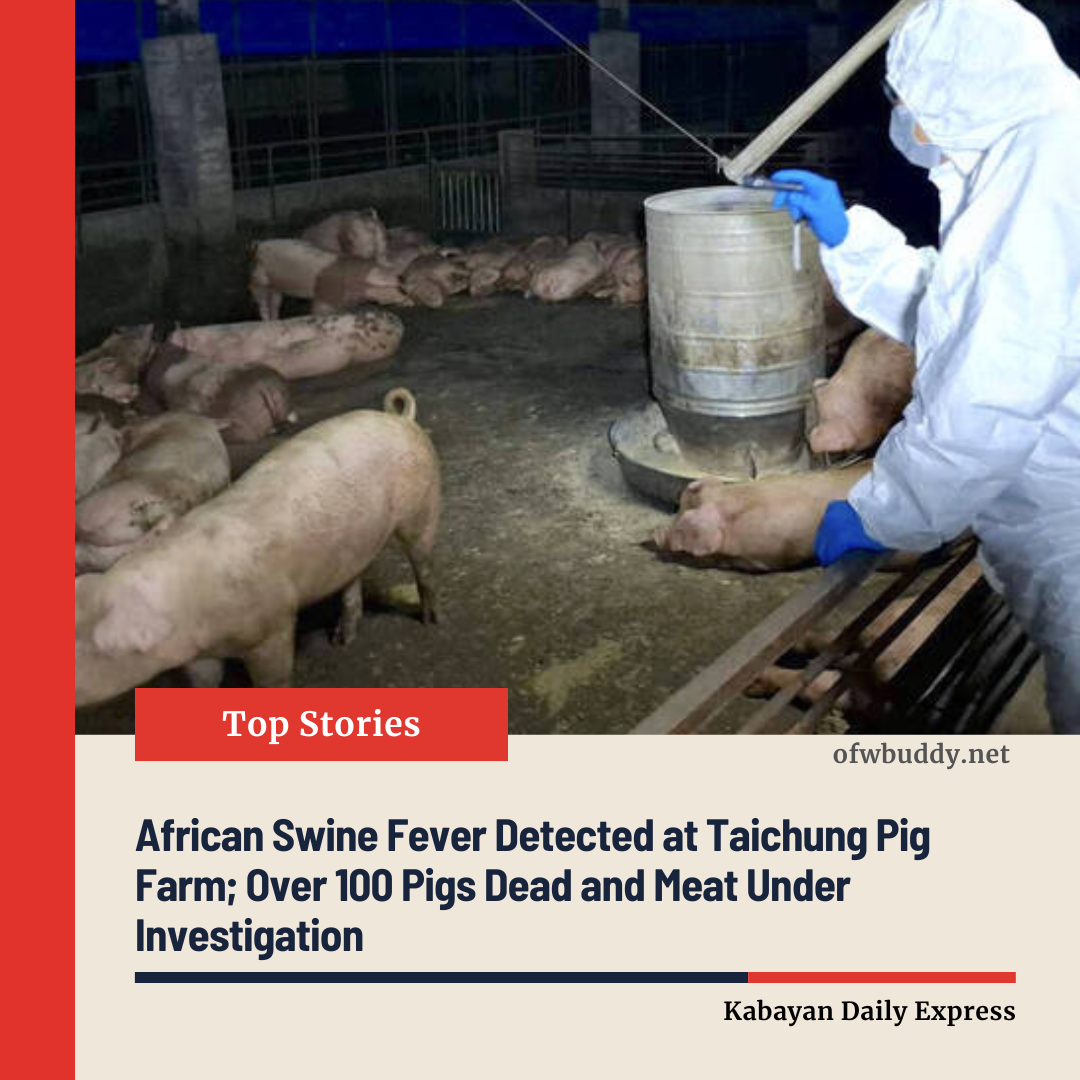Taichung City, Taiwan – October 23, 2025
The African swine fever (ASF) virus has been confirmed at a pig farm in Wuqi District, Taichung City, after more than a hundred pigs died earlier this month. According to the Taichung City Government, the pigs began showing symptoms on October 10, and 117 died before testing revealed ASF infection.
Officials discovered that on October 13, pigs from the affected farm had been sent to the Da’an Meat Market, where two pigs died during transport and 28 were sold. Authorities are now tracing the distribution of the pork to determine where it was sold and whether any of it has already reached consumers.
Since most pigs auctioned at the market are slaughtered and distributed while still warm, it is likely that the affected meat has already been processed and consumed.
Virus Not Harmful to Humans if Meat Is Cooked
Taichung City Health Bureau Director Zeng Zizhan explained that while ASF is a highly contagious and deadly disease among domestic pigs and wild boars of all breeds and ages, it does not infect humans. The virus is sensitive to heat but resistant to cold. This means that properly cooked pork poses no risk to human health, as the virus dies at high temperatures. However, eating undercooked or raw pork can lead to bacterial infections such as E. coli or Salmonella.
Investigation into Source of Infection
Authorities are now focusing on determining how the virus entered the Wuqi pig farm. Preliminary findings suggest that food waste used as pig feed may have played a role, though Taichung Agriculture Bureau Director Chang Jingchang stated that the cause remains under investigation.
Officials are examining whether the food waste used met safety standards—specifically, whether it was heated to at least 90°C and stirred for more than an hour before being fed to pigs, as required by law. Testing food waste for ASF virus is complex due to the high level of impurities, which makes accurate detection difficult.
The Animal Protection Department noted that ASF is primarily spread through direct contact with infected animals, contaminated feed, or objects such as vehicles and equipment. The virus can also be transmitted through kitchen waste, insects, or animal secretions. Ongoing epidemiological investigations aim to trace possible sources, including the entry of infected carcasses or personnel exposed to infected areas.
Authorities continue to monitor pig farms citywide and urge pig farmers to follow strict biosecurity and feed management practices to prevent further outbreaks.

